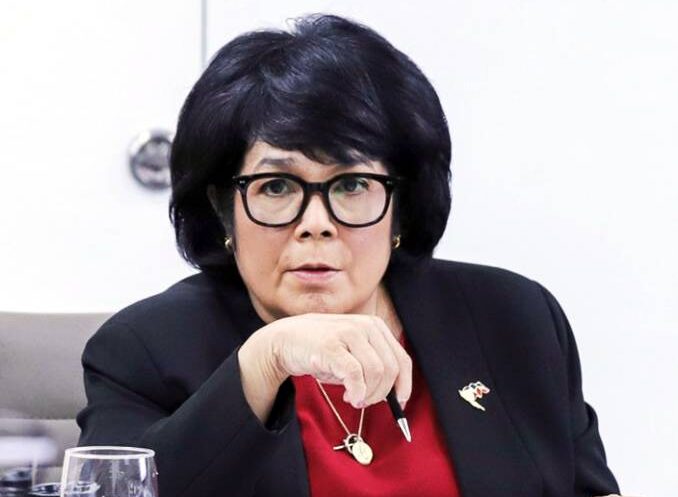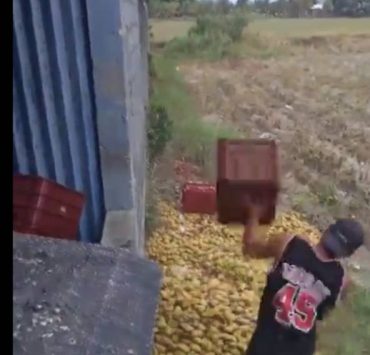Mudslide hits Surigao mine; no casualties reported

SAN FRANCISCO, AGUSAN DEL SUR—A mudslide triggered by the collapse of a portion of a tailings storage facility of Greenstone Resources Corp. (GRC) buried houses in the mining village of Siana, Mainit town in Surigao del Norte at around 5 a.m. on Saturday, May 11, causing 55 families to flee.
The gold mining company blamed the collapse of the embankment of Tailings Storage Facility (TSF) 3 in its mining site on recent earthquakes, including the magnitude 4 temblor that was felt two and a half hours before the landslide.
GRC in-house experts added that intermittent torrential rains over the past few months could have also contributed to the instability of the facility that stores water and waste material left over from the extraction of target minerals such as gold or copper.
GRC operates the Siana Gold project that straddles the municipalities of Mainit and Tubod.
It is wholly owned by TVI Resource Development (Phils.) (TVIRD), a local corporation affiliated with Prime Resources Holdings Inc., a subsidiary of Prime Asset Ventures Inc. that is in turn a member of the Villar Group.
GRC said that cracks had been earlier found on Siana Barangay Road adjacent to the TSF 3 embankment and immediately ordered the evacuation of residents.
Both the local government and GRC executives evacuated affected residents to the municipal gyms in the towns of Tubod and Mainit.
Surigao City-based radio station RPN-dxKS counted at least 55 families at the Tubod Municipal Gym.
An hour after the mudslide, Surigao del Norte Gov. Lyndon Barbers visited Barangay Siana in Mainit town and was told by local officials that there was no recorded casualty, thanks to the timely evacuation of the residents.
However, local officials could not yet provide the exact number of houses damaged by the mudslide and those affected by the cascading tailings from GRC’s damaged facility.
DENR probe
GRC communications director Kaycee Crisostomo said the company immediately helped evacuate residents after receiving reports of cracks on the barangay road and a portion of the TSF 3.
Crisostomo explained in a press statement that the TSF 3 structure was constructed on top of an older tailings storage facility built by mining company Suricon in the 1990s and extended forward by Australian company called Red 5, the former operator that built the TSF 3.
The Department of Environment and Natural Resources (DENR) immediately dispatched a Mines and Geosciences Bureau (MGB) team to investigate the cause of the TSF failure and assess the damage.
“The MGB is also working closely with Greenstone Resources, local authorities and community leaders to ensure the safety and well-being of residents in the affected areas,” Environment Secretary Maria Antonia Yulo Loyzaga said.
The DENR said the probe will cover factors leading to the incident, its impact, the tailings facility’s integrity and the mine’s safety systems and procedures.
“Infrastructure failures highlight the urgent need for monitoring, regulation and oversight in the mining industry to de-risk operations and prevent incidents in the future,” Loyzaga said. “This is urgently needed especially because of the seismicity of our country and the impacts of climate change.”
The DENR recently agreed with mining firms to promote sustainable practices adhering to the “highest environmental standards,” including stationing DENR personnel at active mine sites and creating ethics committees to oversee environmental, social and governance performance.
Integrity of facilities
“While we understand mining’s important contribution to national development in Surigao del Norte and elsewhere, risk management is a continuous, proactive process,” Loyzaga said.
This was not the first time that the integrity of GRC’s facilities had come into question.
In 2013, GRC’s gold processing operations in its Siana Gold Project were stopped after a crack was found on the embankment of its TSF 4.
The MGB allowed it to resume its operations in 2015, after it constructed a new tailings storage facility and implemented other remedial measures.
These include the construction of a new TSF for additional storage; installation of a thickener and cement mixing facility for production of a dry product that would further stabilize existing TSFs; and improvement of its existing TSF 3 and TSF 4 to accommodate cement tailings.

















